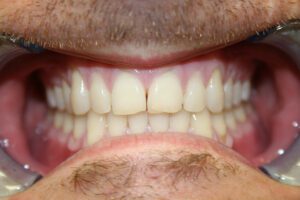Pediatric dentistry is crucial for the development of youth. While parents can start teaching good dental habits at home, a pediatric dentist can handle the more challenging problems. If a child has unique healthcare needs, seeing a pediatric dentist will see to the most appropriate treatment available.
Learn more about pediatric dentistry and how it ensures a lifetime of healthy smiles for kids.
The Necessities of Pediatric Dentistry
The role of pediatric dentistry in a child’s development should never be underestimated. Children will lead a healthy life with an early introduction to good oral and dental hygiene.
Children undergo rapid changes in their oral structures as they grow. Within six months of birth, babies start growing teeth. Six or seven years later, they lose their baby teeth, making way for permanent teeth.
Proper dental care will ensure these kids’ teeth stay healthy throughout their lifetime. Without it, kids could develop oral disease with severe consequences.
Pediatric dentists help parents monitor and address children’s teeth development. For instance, they may provide counsel on the use of pacifiers. Furthermore, they educate parents about the correct oral practices, diet choices, and habits to prevent problems from arising.
Furthermore, pediatric dentists also deal with various dental conditions requiring treatment. Dental problems don’t start when the children become teenagers; they start early. For example, children between 2 and 11 years old in the United States may experience more tooth decay (caries) than asthma and hay fever.
Treatments Performed by Pediatric Dentists
Pediatric dentists perform dental examinations and cleanings, as well as other treatments. Below is the list of treatments your pediatric dentist may carry out for your kids.
The Basic Treatment
- Dental checkups and cleaning: Dentists will examine your kids’ teeth and monitor their growth and development. If necessary, they will perform cleanings.
- Fluoride treatment: Your kids’ dentist may offer this treatment to strengthen the tooth enamel and provide extra protection against cavities.
- Filling cavities: If a child does develop a cavity, the dentist will perform dental fillings to repair the tooth’s form.
- Tooth Extraction: If your child needs a tooth extracted, and it doesn’t come off naturally, your dentist will perform the extraction with minimal discomfort and provide after-care guidance.
Specialized Treatment
- Dental assessments: If a child needs crowns for damaged teeth or space maintainers from losing a primary tooth prematurely, pediatric dentists will assess the issues and perform the necessary treatments.
- Orthodontic assessments: Pediatric dentists also monitor the alignment of teeth and jaw development. They can refer patients to orthodontists for further evaluation and treatment if orthodontic issues are detected.
- “Baby root canals”: While this may sound scary, sometimes, children may need a root canal treatment. When a tooth’s pulp is damaged, the child may need pulp therapy to remove the infection.
Emergency Treatment
Children are prone to injuries from playing too hard or minor accidents. These incidents may result in a missing or fractured tooth, followed by severe toothaches.
Parents may not always be equipped to care for these emergencies, but a local dentist with the skills and ability to handle any dental emergency can help.
Good Dental Habits Pay off
Pediatric dentists do more than treat children’s dental issues. They perform everything from checkups and cleanings to emergency treatments for their minor patients. They also help parents monitor their children’s teeth development.
The earlier children learn to care for their dental and oral hygiene, the fewer problems they will have in the future. Start the appropriate dental habits now and enjoy the benefits later.

